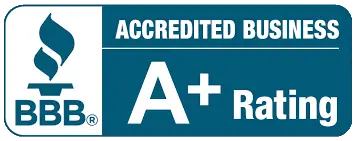What is a United States Waiver
of Inadmissibility?
Please check out the United States Waiver topics below or scroll through this web page for all of your answers.
Definition of a United States Waiver

- Apply for and be granted a United States Waiver;
- Correct the conditions that rendered you inadmissible, such as your health; or
- Provide evidence that you are not inadmissible (Laws are complex and are not always interpreted the same. Individuals are often refused in error or because they do not have proof of their admissibility).
A United States Waiver allows you legal entry into the United States if you are inadmissible. Inadmissibility could arise due to a number of factors described below. For your free consultation, click the button below.
Criminal Record Travel Risks
If you are inadmissible, you must have a United States Waiver of Inadmissibility (or Visa Waiver for most non-Canadians from Countries in the Visa Waiver Program) to gain legal entry to the United States and avoid the risk of:
- Arrest
- Confiscation of vehicle
- Conviction
- Deportation
- Detention
- Embarrassment
- Fines
- Inability to travel en-route through the USA to other international destinations
- Inability to travel over USA airspace
- Inability to visit sick family or friends
- Incarceration
- Lost prepaid travel expenses
- Lost business opportunities
- Missed vacation opportunities
- Refused entry
- Refused medical travel and treatment
- Removal
- Your inadmissibility could trigger temporary or permanent inadmissibility for traveling passengers (friends and family).
CAUTION: People traveling to the United States with you face the same risk as you because of your inadmissibility.
If you are traveling with a friend or relative that is aware of your inadmissibility and you do not have a United States Waiver, your friend or relative could be subject to all of the above risks AND they can be charged and convicted with harboring an illegal alien, an offence that would make them inadmissible to the United States.
Refusal to the United States can be devastating, embarrassing, humiliating and extremely disappointing as it affects situations involving:
- Business travel (meetings, training, trade shows, seminars, and conventions)
- Pleasure trips (vacation, honeymoon, traveling with friends and family)
- Immigrating
- Temporary study or employment
- Retiring on a seasonable basis
- Non-emergency and emergency medical treatment
- Lost employment opportunities to you (job offer or promotion contingent upon ability to travel to the United States) and to your employer
What are Grounds of Excludability?
If you are inadmissible to the United States, you may need a United States Waiver of Inadmissibility to overcome your inadmissibility. You are inadmissible if you committed or were convicted of a criminal offence as an adult involving (See Immigration and Nationality Act, Sec 212 [8 U.S.C. 1182].):
Criminal and Related Violations
- Crimes of Moral Turpitude (CIMT)
- Controlled Substance
- Conviction of 2 or more offences with a combined sentence of 5 or more years
- Prostitution and Commercialized vice
- Certain aliens involved in serious criminal activity who have asserted immunity from prosecution
Other Grounds
- Health Related Problems
- Security and Related Violations
- Illegal Entrants and Immigration Violators
- Document Violations
EXCEPTIONS TO INADMISSIBILITY – CRIMES INVOLVING MORAL TURPITUDE
- The offence occurred between your 15th and 18th birthday and you were not convicted as an adult for a felony/indictable crime of violence.
- There is no evidence of intent to cause harm.
- There is only one adult offence related to a crime of dishonesty or violence where the maximum penalty is 1 year and the sentence imposed was 6 months or less.
NOTE: The Criminal Code has been amended many times over the years—so to know what maximum sentence applies to your particular case, you’d have to go to the Criminal Code of Canada for the time period you were convicted.
EXCEPTIONS TO INADMISSIBILITY – CONTROLLED SUBSTANCE
- The offence occurred between your 15th and 18th birthday and is not a serious drug offence.
EXCEPTIONS TO INADMISSIBILITY – GRAY AREA
The following convictions currently carry a maximum potential sentence of 18 months in jail, so regardless of whether you received time in jail, even if tried summarily, it would appear that you may still need to apply for a Waiver:
- Sexual Assault
- Uttering Threat (the criminal code reads “to cause serious injury or death”)
- Assault with a Weapon (or Causing Bodily Harm)
But, there are circumstances in which you do NOT need a Waiver for these offences. For example, there was a time when sexual assault, when tried summarily, carried only a maximum sentence of 6 months in jail. If you had only this on your criminal record, you would meet the exception rule and NOT need a Waiver. Likewise, evidence of intent to cause harm is not apparent from the Criminal Code of Canada, so you may be able to argue that you are not inadmissible to the United States for Uttering Threats or Assault with a Weapon (if established that harm was not intended).
Therefore, these offences are what we call the ‘gray area’. On the surface they may appear to be excludable and you may be denied entry for offences such as these, but you may have a strong case for not being inadmissible. We can help you get this sorted out so that you can avoid the risk of refusal.
CAUTION
There may be exceptions. This list is subject to change at any time and does not include all grounds for inadmissibility. Nor does this list constitute as legal advice. Extreme caution must be exercised when determining your inadmissibility. It is advised that you talk to a United States Waiver Adviser to discuss your situation. Call 1-800-320-2477 toll-free for your free consultation. If calling from Calgary, please call: 403-229-2774.
According to www.dictionary.com, Moral Turpitude is defined as:
1 : an act or behavior that gravely violates the sentiment or accepted standard of the community 2 : a quality of dishonesty or other immorality that is determined by a court to be present in the commission of a criminal offense …Theft, perjury, vice crimes, bigamy, and rape have generally been found to involve moral turpitude, while liquor law violations and disorderly conduct generally have not.
According to Jordan v. De George, 341 U.S. 223, 229, 71 S. Ct. 703, reh’g denied, 341 U.S. 956, 71 S. Ct. 1011 (1951), moral turpitude is:
…conduct that is inherently based, vile, or depraved, and contrary to the accepted rules of morality and the duties between persons or to society in general.
Examples of Crimes Involving Moral Turpitude (CIMT)
- Passing Bad Cheques – with element of Fraud
- Assault Causing Bodily Harm or With Intent to Cause Harm
- Assault with a Weapon
- Assault with intent to cause bodily harm
- Aggravated Assault
- Sexual Assault
- Theft
- Burglary
- Trespass with Intent to Commit a CIMT
- Endangerment and Actual Injury
- Child Abuse in some cases
- Prostitution
(*Source: McWhirter, R. J. The Criminal Lawyer’s Guide to Immigration Law: Questions and Answers, Alberta Bar Association: 2006, 2nd Ed., p. 133-136.)
Offences like failure to appear, causing a disturbance, common assault and impaired driving are not ordinarily considered in determining inadmissibility as they are not Crimes Involving Mortal Turpitude (CIMT). Even impaired driving causing injury or death may not make you inadmissible for so long as there is “no evidence of intent to cause injury or death”. As such, multiple convictions involving crimes which are NOT classified as CIMTs ordinarily do not render you excludable to the United States. Finally, there are instances where some of the convictions on the above list, though by definition are CIMTs, may NOT result in inadmissibility to the United States.
Medical Inadmissibility – you might have several convictions (such as impaired driving) which suggest you suffer from alcoholism. It is possible you could be denied entry for medical reasons if the U.S. authorities believe you pose a serious risk to the United States. You could be asked to undergo medical testing to determine if you are a medical risk to the United States.
Convictions are tried either summarily or by indictment. Some convictions are always summary (i.e. causing a disturbance) and are considered minor offences. Other convictions are always indictable (i.e. break and enter into a dwelling house, theft over, theft from an employer, drug trafficking or cultivation) and are more serious offences. A hybrid offence is an offence that can be tried either summarily or by indictment.
A hybrid offence is ordinarily treated as an indictable offence, unless the Crown elects to treat it as a summary offence. In other words, hybrid offences can be either summary or indictable and include convictions such as theft under, mischief, and assault. Each individual case may vary, leaving some clients inadmissible to the U.S. (because the Crown proceeded by indictment) and others admissible (because the Crown proceeded summarily), even though they have the same conviction.
To determine whether your conviction is summary or indictable, you will need to refer to your Court Document or you may contact our office.
CAUTION: PLEASE CONTACT US IMMEDIATELY IF YOUR CONVICTION WAS DEEMED INDICTABLE (IE. THERE WAS NO ELECTION) AND YOU WERE TRIED IN PROVINCIAL COURT.
Conditional and Absolute Discharges
This excerpt is from the Canadian Criminal Code:
730. (1) Where an accused, other than an organization, pleads guilty to or is found guilty of an offence, other than an offence for which a minimum punishment is prescribed by law or an offence punishable by imprisonment for fourteen years or for life, the court before which the accused appears may, if it considers it to be in the best interests of the accused and not contrary to the public interest, instead of convicting the accused, by order direct that the accused be discharged absolutely or on the conditions prescribed in a probation order made under subsection 731(2).
The above paragraph indicates that there has been an admission or finding of guilt. Even though a discharge is not a conviction, it is still evidence of guilt, and may still render a person inadmissible to the United States. You need to apply the same admissibility rules to discharges as are applied to convictions. For more information on discharges, please visit our information page on conditional and absolute discharges.
Admitting to Drug Use or Arrest at a U.S. Port of Entry

You may need a United States Waiver for Legal Entry.
You need to apply admissibility rules to the following:
- convictions;
- discharges; and
- offences committed.
If you committed an offence, but were never convicted, you could still be denied entry to the United States and may still require a United States Waiver.
The most common examples of this are when the Port of Entry Officer asks “have you ever smoked pot?” or “have you ever been arrested, charged or fingerprinted?”. If you answer yes (even though you were never convicted or discharged or charges were withdrawn/dismissed, etc.), and describe anything which would suggest that you may have committed an excludable offence, you could be deemed inadmissible.
Charges are not ordinarily accessible to the U.S. after dropped, withdrawn, dismissed, etc. However, the U.S. may be able to access this information if charges are pending or the discharge has not yet been purged from your record after the one or three year waiting period…
Travelling to the United States with a Pardoned Criminal Record
NOTICE: As a result of Bill-C10, the Record Suspension replaced the Canada Pardon on March, 13 2012. The term Pardon is used interchangeable with the term Record Suspension.
According to the National Parole Board, a Canadian Pardon is not recognized outside Canada. Specifically, they state:
Many foreign countries, including the United States (U.S.), do not recognize a Canadian Pardon. If you have a criminal record and are interested in going to the U.S., you may want to apply for an American Immigration and Naturalization Service Waiver (American INS Waiver).
Can My Pardoned File Be Disclosed to the United States or any Other Countries?
According to the National Parole Board:
Under the CRA, only the Solicitor General of Canada has the authority to disclose information from a Pardoned record…if satisfied that the disclosure is desirable in the interests of the administration of justice or for any purpose related to the safety or security of Canada or any state allied or associated with Canada. In other words, the Solicitor General may choose to disclose a pardoned file to the United States or any other country without your consent or knowledge.
According to Sec. 212(a)(6)(i) of the United States Immigration and Nationality Act [8 U.S.C. 1182], misrepresentation is defined as:
In general – Any alien who, by fraud or willfully misrepresenting a material fact, seeks to procure (or has sought to procure or has procured) a visa, other documentation, or admission into the United States or other benefit provided under this Act is inadmissible.
According to McWhirter, R.J. (The Criminal Lawyer’s Guide to Immigration Law: Questions and Answers, Alberta Bar Association: 2006, 2nde Ed., p. 261.):
…denying a criminal conviction violates 18 U.S.C. § 1546.
Fact or Fiction: Common Myths about Travelling to the U.S. with a Criminal Record
Canadians often make FALSE ASSUMPTIONS about their ability to travel to the United States. Your ability to travel to the United States is not an automatic right; it is a privilege that can easily be revoked. The following are FALSE ASSUMPTIONS (Fiction) which are followed by the FACTS:
Fiction:
- Your ability to enter the United States is discretionary.
Fact:
- Your admissibility is not discretionary. Either your record makes you inadmissible to the United States or it does not. The only thing that is discretionary when entering the United States is whether or not a U.S. border crossing guard is going to run your name to see if you have a criminal record. Laws are complex. There have been cases where border guards have chosen to ignore the fact that you are inadmissible–but this does not ordinarily happen (so it would appear your admissibility is discretionary). Furthermore, a border guard may err in letting you think you are admissible when in fact you are not, or, refuse you in error or because you do not have proper documentation with you that proves your admissibility.
Fiction:
- I’ve been to the United States several times before, so I must be okay.
Fact:
- There is only random screenings through airport security—the United States border (port of entry) office does not check every individual to see if they have a criminal record.
Fiction:
- I received a Canadian Passport…so I must be okay to travel.
Fact:
- A Canadian Passport is a form of identification. It is a travel document that facilitates travel. A passport, however, is ORDINARILY not linked to your Criminal Record and is not evidence that you no longer have a criminal record (unless there are travel restrictions linked to your Passport due to probation order which prohibits travel out of Country).
- Canadian Passport does not help you overcome inadmissibility. If you are inadmissible, you must apply for a Waiver. When port authorities run your passport they are checking to see if it is valid and not reported stolen. They need to check a different database to see if you have a criminal record.
Fiction:
- It has been over 7 years since I was last convicted…my record is probably gone by now.
Fact:
- Your criminal record does not “automatically go away” or get purged (with the exception of previously detailed absolute and conditional discharges). In order to seal your criminal record, you must apply for a Record Suspension (previously called Pardon). A Record Suspension does not erase the fact that you were convicted. Your Record Suspension can be revoked if you re-offend. Regardless, Record Suspensions are still not recognized by the United States and do not help you overcome inadmissibility.
Fiction:
- Sometimes they let me in, sometimes they don’t. It’s no big deal…I’ll try to enter again. The worst that can happen is that they refuse me again.
Fact:
- You hope that all they do is refuse you! Homeland Security can confiscate your vehicle, fine you, lay criminal charges against you, detain you, incarcerate you, and more!
- The admissibility of passengers traveling with you may also be at risk. Persons traveling to the U.S. with you, especially in cases where they are aware of your record and that you may be inadmissible, may be charged and convicted with harboring an illegal alien.
Fiction:
- I’ll let my spouse drive her vehicle…that way if they run the licence plate on her vehicle and see that she has no criminal record they may just wave us through.
Fact:
- If Homeland Security checks to see if the passengers have a criminal record and it is determined or believed that your spouse was aware of your inadmissibility, your spouse can be charged and convicted with harboring an illegal alien (which could result in detention, arrest, fines and incarceration) for trying to help you gain illegal entry into the United States. Such an offence would then automatically result in your spouse’s inadmissibility.
Fiction:
- I have to go to the United States on an emergency. They should let me in.
Fact:
- Unless it is a life and death situation, you will not likely get a temporary pass to enter (Port Parole)—even if it means you will lose your job or be unable to go to the United States on your honeymoon. Emergency applications are not intended to help individuals circumvent having to apply for a Waiver. They are for life and death situations only. As a rule; they are extremely strict. However, I admit there are occasions where some border guards ignore the strict guidelines and allow a person in with a Port Parole even for simple pleasure. Please contact my office if you’d like to apply for a Port Parole.
Fiction:
- I’ve been told that I should not apply for a Pardon before applying for a Waiver.
Fact:
- The concern is that once pardoned it will be difficult to obtain the necessary documents required when applying for a Waiver. However, once pardoned, you personally can still access your pardoned file and Court Documents under the Privacy Act–and in some cases it can be faster to order pardoned information under the Privacy Act than in cases in which an individual is not pardoned! To illustrate, it can take up to 4 months to obtain an RCMP record which has not been pardoned and 2 to 4 weeks to obtain a pardoned record. There are many benefits to being pardoned, and it is my strong opinion that there is NEVER any benefit to delaying an Application for Pardon (now called Record Suspension).
- Some court documents MAY be impossible to obtain after Pardoned. This would be unfortunate in cases where your court documents are the only thing that will prove you do NOT need a US Waiver.
Fiction:
- I have a Conditional or Absolute Discharge—it is not a conviction and, therefore, I will not have problems going to the United States.
Fact:
- Refer to our previous section on Conditional and Absolute Discharges. Discharges are seen as “guilty” and are treated like convictions for the purposes of U.S. Admissibility.
.
1-Year, 5-Year and Permanent United States Waivers
Currently, only 1-year to 5-year United States Waivers are issued. Permanent United States Waivers (I-175 US Border Crossing Card) are no longer issued. If you possess an old Border Crossing Card, you are very fortunate. Be sure to keep the card in a safe place, as it may be hard to replace if it is lost or stolen.
Note: Technically the I-175 card is no longer valid. But the 2-3 page document you received with it (I-192 United States Waiver) is still valid. You should travel with the I-175 border crossing card and I-192 United States Waiver. In the event the I-175 border crossing card is taken for no other reason other than the border guard states it is not longer valid, as long as you still have your I-192 United States Waiver document you should be okay to travel. If this too is taken for no reason (ie. you have not done anything new to make yourself inadmissible since it was granted) then the revocation was likely in error and you can apply to have it replaced.
8CFR section 212.4(c)(3)(ii) states:
(iv) An authorization that was previously issued in conjunction with Form I-185, Nonresident Alien Canadian Border Crossing Card, and that is noted on the card may remain valid. Although the waiver may remain valid, the non-biometric border crossing card portion of this document is not valid after that date. This waiver authorization shall cease if otherwise revoked or voided.
Hranka Case
In Matter of Hranka, 16 I&N Dec. 491 (BIA 1978), the decision to refuse or grant your United States Waiver Application is based on the following three factors:
- the risk of harm to society if the applicant is admitted;
- the seriousness of the applicant’s immigration law, or criminal law violation, if any; and
- the nature of the applicant’s reasons for wishing to enter the United States.
We work with you to ensure as much as possible that your United States Waiver Application is strong in all three areas. In the event your application is not strong enough in one area, it is possible that if the other two areas are sufficiently strong, that you may be able to overcome the area which may be lacking. If we feel your United States Waiver application is unlikely to be granted based upon the criteria identified in the Hranka case, we will be truthful with you and advise as to how long we think you should delay your file or what you can do to strengthen any of the three areas to improve your chances.
United States Waiver Processing Times
Since 1987, processing times for United States Waiver Applications have fluctuated from as few as 3 months to as long as 2 or more years (the granting office moved 3 times within 5 years and this caused serious backlogs). DO NOT wait until the last minute to apply for a Waiver. You may need to apply at least 8 to 18 months in advance of your scheduled trip. If you have a serious record involving sexual assault and/or drug trafficking, it could take longer than 18 months for your application to be completed.
Emergency Applications
United States Waivers cannot be rushed or expedited. Instead, if an emergency situation exists, you may be considered for a Port Parole (previously called an Advance Parole). However, an emergency Port Parole only applies to life and death situations—not employment or vacation or honeymoon. There are exceptions, but only at the discretion of U.S. Customs and Border Protection.
If your situation qualifies as an emergency, you may still be refused a Port Parole (and United States Waiver) if your emergency or reasons for traveling to the United States do not outweigh the seriousness of risk to the United States should you be permitted entry.
There is a high degree of unpredictability with Port Paroles. I have had clients experience situations that were clearly urgent and worthy of approval (such as visiting a dying parent) that were denied and situations which were not urgent (such as attending a Pool Tournament) that were granted. The decision to grant a port parole is made by the officer present at the time of the emergency at the port where the applicant will be entering.
Port Paroles are also not to be used to circumvent the United States Waiver process. If the border guard feels you had plenty of time to apply for the United States Waiver your Port Parole may be denied. There is a better chance that your Port Parole will be approved if your United States Waiver application has been submitted and is waiting for approval.
If you would like to find out if your situation may qualify as an emergency, or if you would like a free consultation, please contact our office.
Travelling to Foreign Countries with a Criminal Record
Criminal Record and Travel Abroad
Most countries will not inquire as to whether you have a criminal record when traveling to their country unless you plan to (a) visit their country for more than 6 months; (b) immigrate to their country; or (c) obtain a work visa for their country. You will need to check the Consulate of the Country to which you are traveling to determine if your record will prevent you from entering.
CAUTION: due to world events more and more countries are requiring individuals to apply for Visas—in which case, you may be required to disclose your criminal record. If your record is an obstacle, in most cases (excluding the United States) this obstacle will be removed once you obtain a Canadian Pardon (now called a Record Suspension). For more information on Pardons/Suspensions, please contact us.
NOTE: If you are inadmissible to the United States, you cannot travel to a foreign country via the United States (i.e. stop-over in the United States) unless you have a United States Waiver of Inadmissibility. In some cases, you may even be denied entry on a plane that flies over USA Airspace. Based upon my observation, this is only likely to happen to the most serious of offenders or individuals on the no-fly list (i.e. members or suspected members of gangs such as Hell’s Angels or Terrorist Organizations).
About the Canadian Legal Resource Centre Inc.
My name is Debbie Ward. I have been assisting individuals with Pardons and United States Waivers since 1987. I am also the owner of Canadian Legal Resource Centre Inc. (CLRC)—a business that I have operated since 1995. My company employs a team of 10 full-time staff members. My credentials are as follows:
- Bachelor of Commerce Degree (B.Comm.) – University of Calgary
- Professional Legal Assistant Diploma – Career College
- Immigration Courses – Seneca College (Basis Principles of Immigration Law and Policy, Skilled Worker; Family Class, In Canada Applications and Appeals to Immigration and Refugee Board; Temporary Status and Professional Practice Management )
- Commissioner for Oaths
- Authorized Fingerprinting Agent – RCMP “K” Division
- 25+ years experience
There are several reasons why you should hire our company to assist you with your United States Waiver:
- The current processing time is very lengthy (at least 8 months and in some cases 12 to 18 months). Can you afford to wait the 8 to 18 months to find out your application has been denied only to have to re-apply and wait another 8 to 18 months?
- By hiring our company, you maximize your chances of obtaining a 5-year United States Waiver (and minimize the risk of refusal or receiving a 1-year Waiver) and in cases where you are not inadmissible–we provide you with the documentation that you need to carry with you to prove your admissibility and avoid the risk of wrongful refusal.
- We complete a thorough assessment of your case and assist with every aspect of putting together the best possible United States Waiver Application for a favorable outcome.
- There are long lineups at the submission office. Many individuals have repeatedly turned away as a result of having incomplete or incorrect documentation, resulting in wasted hours standing in line and significant delays in application submission.
- What are you waiting for? Please call now.
Fees and Disbursements
For a complete guide to our pricing, please click the following button:
Legal Information is Not Legal Advice. This article does not constitute as legal advice. Legal information is subject to change at any time. Legal advice may vary based on individual circumstances. The above information is general in nature and may not be applicable to your individual circumstances.



